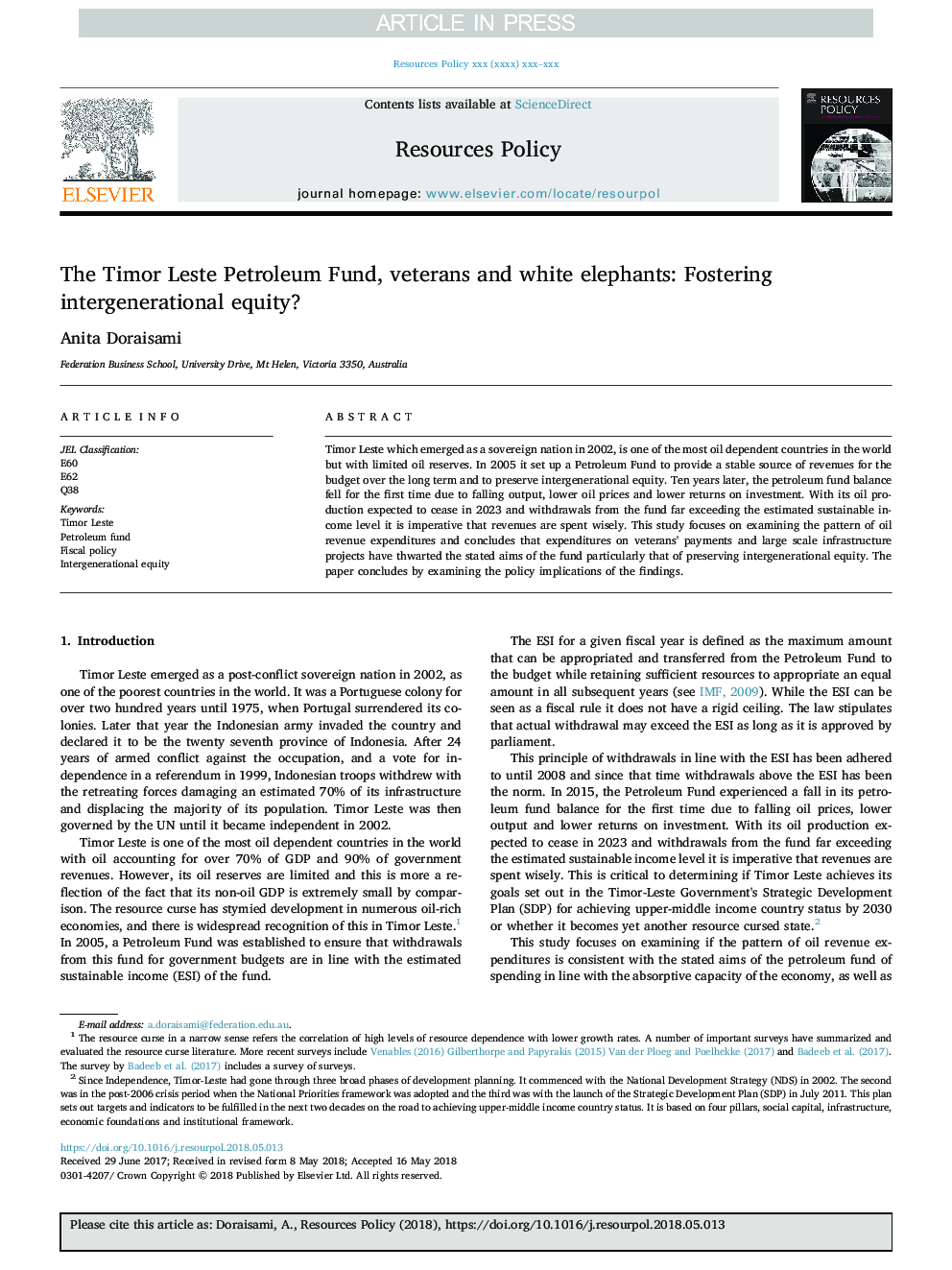| Article ID | Journal | Published Year | Pages | File Type |
|---|---|---|---|---|
| 10153805 | Resources Policy | 2018 | 7 Pages |
Abstract
Timor Leste which emerged as a sovereign nation in 2002, is one of the most oil dependent countries in the world but with limited oil reserves. In 2005 it set up a Petroleum Fund to provide a stable source of revenues for the budget over the long term and to preserve intergenerational equity. Ten years later, the petroleum fund balance fell for the first time due to falling output, lower oil prices and lower returns on investment. With its oil production expected to cease in 2023 and withdrawals from the fund far exceeding the estimated sustainable income level it is imperative that revenues are spent wisely. This study focuses on examining the pattern of oil revenue expenditures and concludes that expenditures on veterans' payments and large scale infrastructure projects have thwarted the stated aims of the fund particularly that of preserving intergenerational equity. The paper concludes by examining the policy implications of the findings.
Related Topics
Physical Sciences and Engineering
Earth and Planetary Sciences
Economic Geology
Authors
Anita Doraisami,
